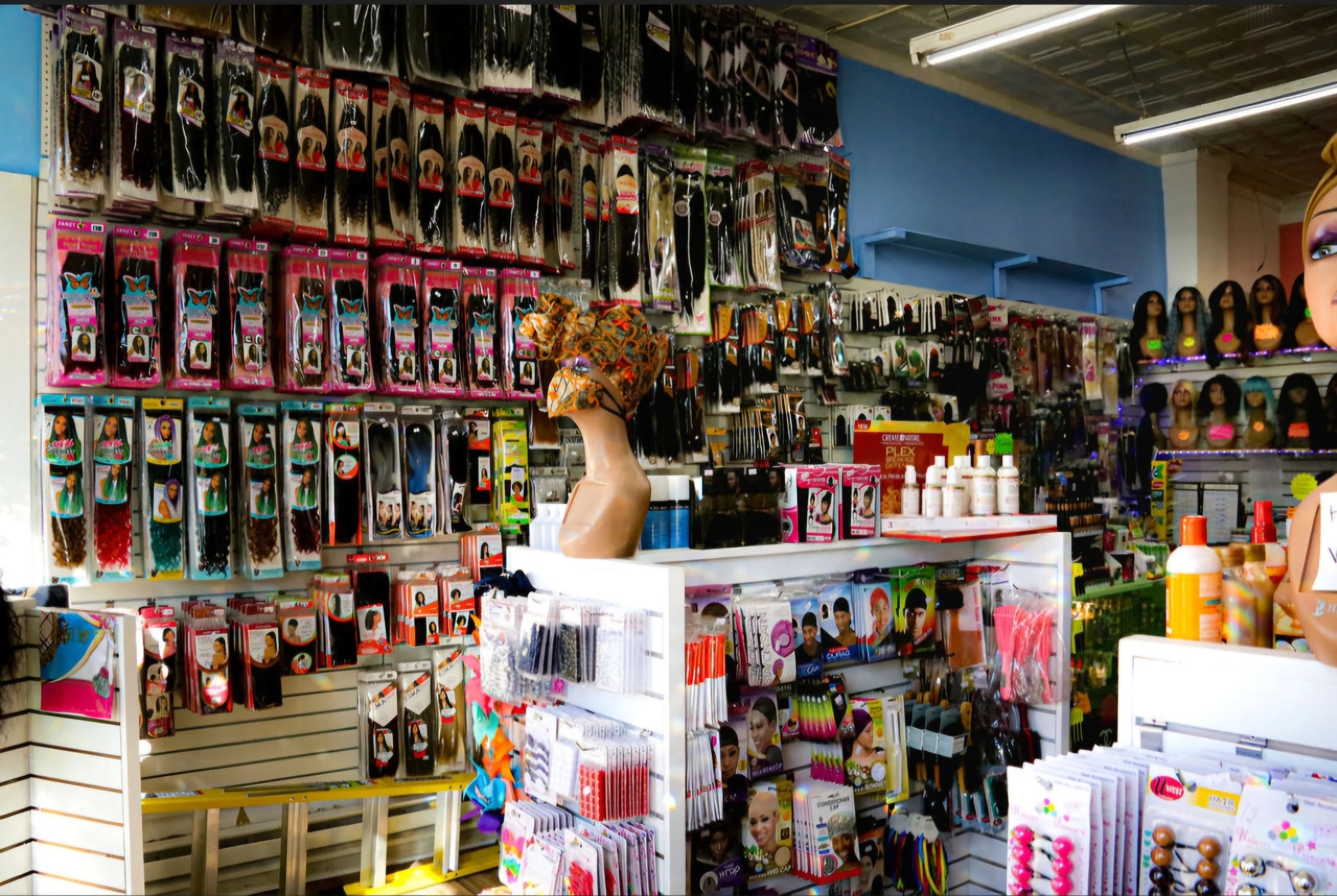Beauty Supply Stores & Black Hair Culture: The Power, The Disparity, & The Fight for Ownership
The Black hair care industry is a billion-dollar powerhouse—yet, despite being the primary consumers, Black entrepreneurs continue to face significant barriers to ownership in the beauty supply business. From systemic disadvantages in funding and business access to the complex dynamics of store proximity and relationships with non-Black owners, this issue runs deep.
The Power of Black Hair Culture in the Beauty Industry
Black consumers spend over $2.5 billion annually on hair care products, contributing significantly to the financial success of the beauty industry. From relaxers to edge control, bundles to braiding hair, our purchasing power fuels the market. Trends born within Black communities—protective styles, locs, twist-outs, wigs, and braids—dictate the direction of the entire industry. Yet, despite this economic contribution, Black business owners struggle to claim their fair share of the market.
Proximity & The Disadvantages of Ownership
Many beauty supply stores are located in Black communities, yet an estimated 70-80% of them are owned by non-Black individuals, particularly Korean and other Asian business owners. This dominance is not accidental—it stems from decades of monopolization of the wholesale and distribution networks. Many Black entrepreneurs find it difficult to access the same suppliers, facing inflated product costs or outright refusals to sell to them.
Additionally, discriminatory lending practices make it harder for Black entrepreneurs to secure business loans, meaning the capital needed to start a beauty supply store is often out of reach. As a result, while Black dollars circulate within the industry, they do not always benefit Black business owners in the way they should.
Black Owned Beauty Supply Stores
Your Roots Beauty Supply- Marietta Ga
Slay Beauty Supply- Atlanta, Ga
Kuku’s Beauty Supply- Washington, DC
Black Label & Beauty- Frisco, Texas
Pure Hair Garage- Martinsburg, WV
The Complex Relationship Between Store Owners & Consumers
There is an undeniable tension between Black consumers and non-Black beauty supply owners. While these stores rely almost exclusively on Black customers, many owners do not invest in building real relationships with the communities they serve. Reports of racial profiling, disrespect, and even physical altercations in beauty supply stores highlight the disconnect.
Despite this, Black consumers continue to shop at these establishments because they often have no other choice. With limited Black-owned alternatives and a strong cultural need for specific hair products, convenience outweighs principle. However, this dynamic is slowly shifting.
The Fight for Black Ownership & Solutions for Change
The movement to reclaim Black ownership in the beauty supply space is growing. More Black entrepreneurs are breaking into the industry, despite the barriers, by:
• Creating independent brands that manufacture and distribute hair care products directly to consumers.
• Forming cooperative buying groups to access wholesale products at fairer prices.
• Educating consumers on supporting Black-owned beauty supply stores and online businesses.
Black entrepreneurs are also leveraging e-commerce, subscription boxes, and direct-to-consumer sales to bypass traditional gatekeepers.
Final Thoughts: Reclaiming Our Space
The beauty supply industry would not exist in its current form without Black hair culture. Yet, true economic empowerment means more than just being the best customers—it means having ownership, influence, and control over the businesses that profit from our cultural legacy. By supporting Black-owned beauty supply stores and brands, advocating for fair business practices, and breaking down barriers to entry, we can begin reclaiming our rightful place in the industry we built.
Are You Supporting Black-Owned Beauty?
Have you made an effort to shop at a Black-owned beauty supply store? Follow @Nekkibstyles on Instagram—let’s keep this conversation going.
